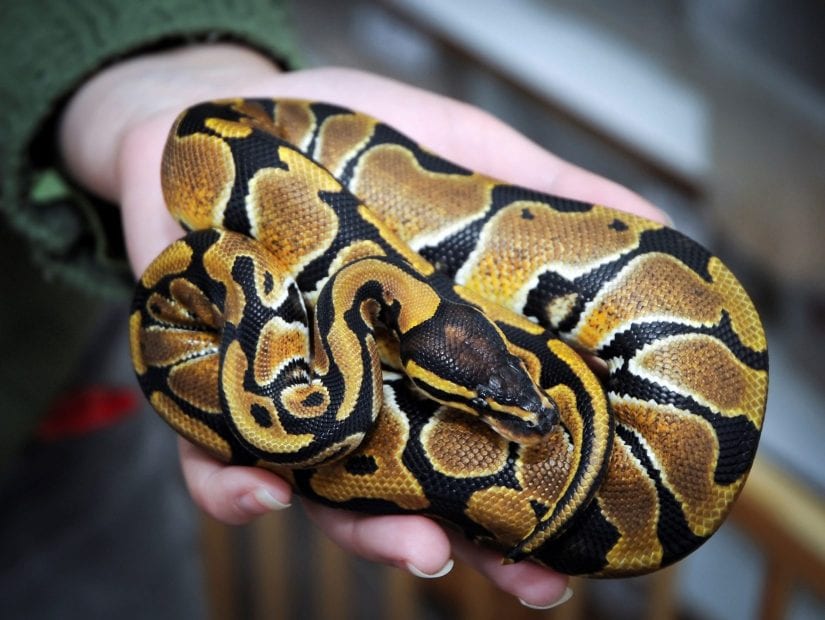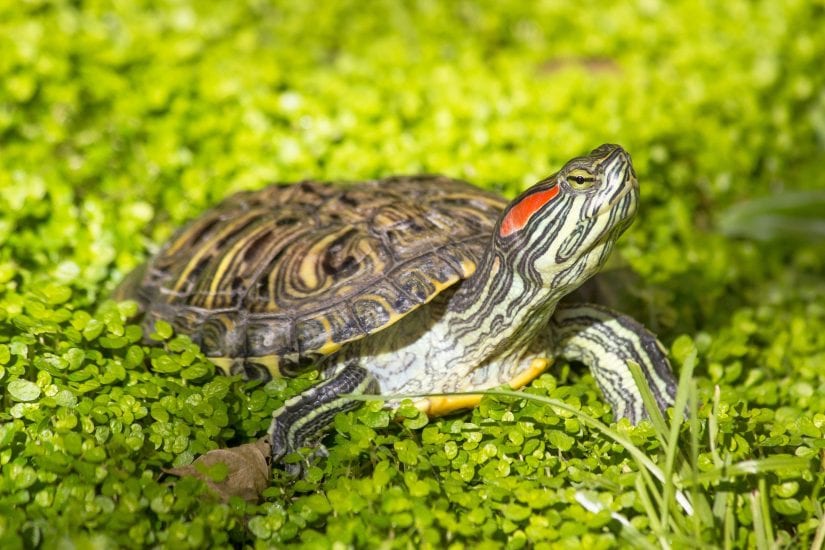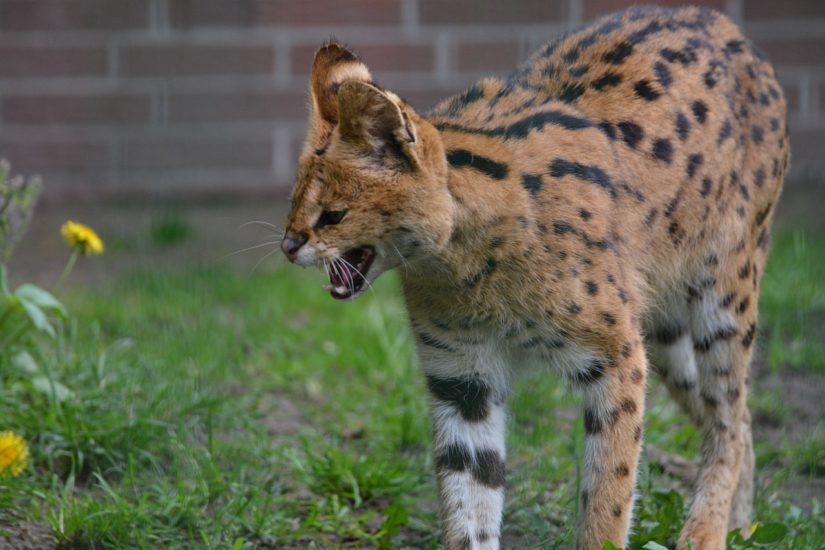What happens when someone can no longer keep their exotic pet?
Unlike cats or dogs, exotic pets can’t be brought to just any animal shelter. Many shelters don’t have the facilities or expertise necessary to provide for their needs. Few rescue groups take in exotic animals, and those that do are often already at capacity. The same goes for sanctuaries and refuges.
With so few options available, some people end up releasing their pets outside. Sadly, apart from being illegal, this can have devastating results — for the animal and for the environment. It’s a similar story for exotic animals who aren’t released intentionally but manage to escape outdoors.
Exotic pets can suffer in the wild
Exotic animals are so-called for a reason: they’re not native to British Columbia and, as such, not adapted to live here — even if they were born and raised in captivity here.
Outdoors, exotic pets face numerous challenges. Finding suitable food and shelter and avoiding predators are not easy feats, and the threat of starvation, exposure or predation is very real. They’re also at risk of being hit by a car as they navigate an unfamiliar and frightening landscape.
Example #1: Ball pythons on the loose
In 2015, someone released three young ball pythons on Burnaby Mountain over the summer. Fortunately, they were rescued before the weather got too cold. Native to sub-Saharan Africa, the snakes might not have survived the winter — or would have become prey to a coyote before then.
On southern Vancouver Island, a ball python escaped from his guardian twice in the summer of 2020. Sadly, this snake was not so lucky: he was found dead a month or so following his second escape.

Exotic pets can damage ecosystems
Not all exotic pets meet such a tragic end when they’re released or escape. Some manage to survive — and even thrive. The problem then becomes the damage they can cause to the environment.
Exotic animals can displace native wildlife, including species at risk, by outcompeting and depleting the resources they rely on. They can introduce diseases and parasites, and even alter the very structure and composition of the habitat they now occupy. And they aren’t necessarily restricted to this habitat. Some go on to populate new areas.
Example #2: Red-eared slider turtles on the loose
Red-eared slider turtles were popular pets in the late 1980s and early 1990s, thanks in part to the Teenage Mutant Ninja Turtles cartoon. Most were sold in pet stores as babies no bigger than a loonie. When people realized the turtles could live up to 40 years and grow larger than a dinner plate, many were abandoned in local ponds, where they began outcompeting native turtle species.

Example #3: Goldfish on the loose
Throughout British Columbia, there are lakes filled with former pet goldfish. Able to survive and reproduce, they are wreaking havoc on local waterways, where they outcompete and prey on native fish species. They also disturb the sediment as they feed, which increases the cloudiness of the water and affects the growth of aquatic plants.

Exotic pets can harm other animals
In addition to causing harm to other animals indirectly through their impacts on the environment, exotic pets can pose a direct danger. Both wild and domestic animals are at risk, whether they’re seen as a threat or as a potential meal.
Example #4: Servals on the loose
Roughly as big as a medium-sized dog, servals are native to many parts of Africa, where they roam grasslands hunting for rodents, hares, birds, reptiles, frogs, fish and insects. On Vancouver Island, a pair of servals escaped their enclosure in the fall of 2022. Fortunately, they were captured a short while later, but not before they had killed a domestic cat and several ducks.

What you can do to help exotic animals
For these reasons and more, the BC SPCA takes a strong stance on exotic pet ownership, and works to raise this issue at all levels of government. You can help exotic animals too with the following actions:
- Think carefully before you get any pet, but especially an exotic animal. The trade in exotic pets, both legal and illegal, has many hidden animal welfare problems.
- If you have an exotic animal already, strive to provide your pet with the Five Freedoms. Question care recommendations based on long-standing beliefs without evidence to back them up. Instead, house your pet in the largest possible habitat, find an experienced exotics veterinarian and seek out expert advice on enrichment.
- While the provincial government has banned large exotics such as tigers, alligators and venomous snakes, ownership of many of the smaller exotic pets is still permitted. Ask your local government for updated municipal bylaws to protect these animals — preferably ones based on ‘positive’ lists.
- Avoid liking or sharing posts or videos about exotic animals on social media. Social media can make exotic pet ownership seem easy and appealing and mask the animal suffering that occurs behind the scenes.
For more information, visit spca.bc.ca/exotics.
WildSense newsletter
Want to receive more stories like this, right in your inbox? Subscribe to WildSense, our bi-monthly wildlife newsletter.
The BC SPCA uses your personal information to update you on our work for animals as well as for advertising and analytics purposes. More information on uses and how to opt-out can be found in our Privacy Policy.
